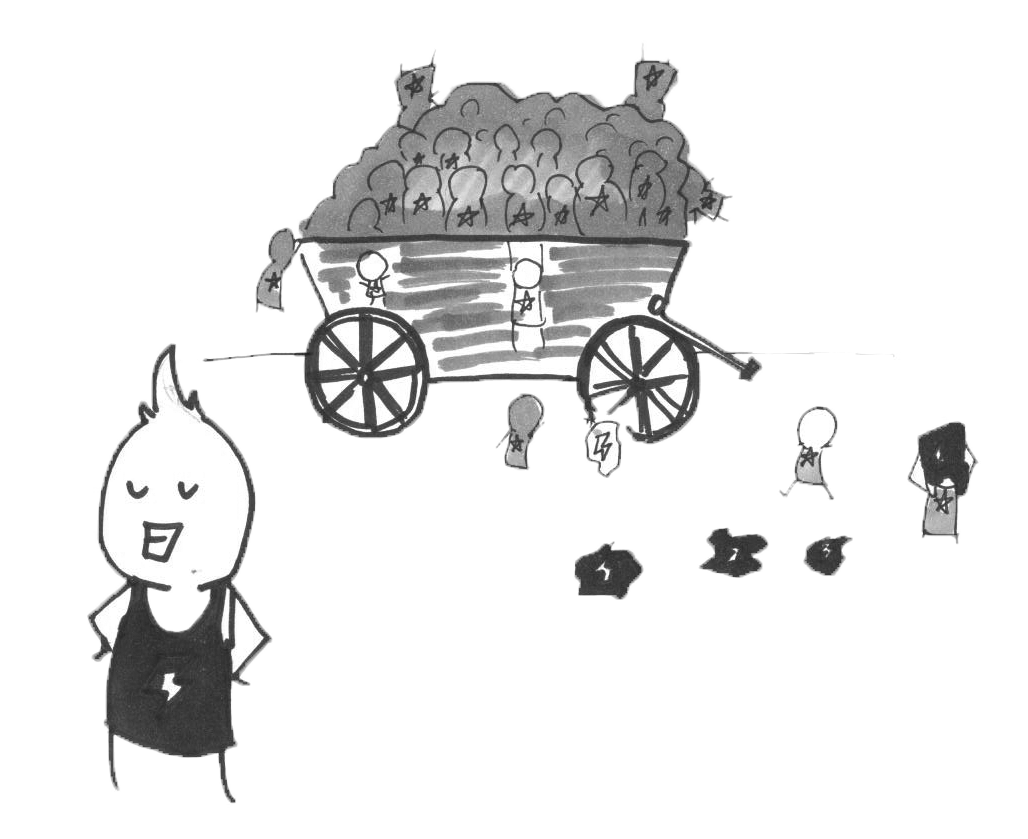
Bandwagoning is the pet peeve of every die-hard sports fan. It has a negative connotation amongst many sports followers and fans who practice this are usually shunned by “true” fans. But sometimes, people are quick to claim that someone is a bandwagoner without truly understanding what it means to be a bandwagoner. So what makes someone a bandwagoner? And is bandwagoning really that bad, or is there also a positive aspect to it?
Bandwagoning in sports means following a good team because lots of other people follow them. This may sound weak or cowardly for some people and acceptable for other people. Bandwagoning can be seen differently based on how close a person is to a team and how close the bandwagoner claims he is to that team.
“[Bandwagoning is] pretty annoying,” says junior Nico Abad. “[People bandwagon because they] care so much about other people’s opinions … [and] have to be part of something.”
Junior Prateek Tenkale views bandwagoning differently and claims, “It is okay to be a bandwagoner [because] you would be pretty bored [and] you wouldn’t want to put your faith [and] your passion in [a team that keeps losing].” Tenkale also notes, “It is not okay to go against your own home team.”
Sophomore Rithik Booreddy has a more neutral feeling towards bandwagoning. He claims, “[Bandwagoners are] just trying to fit in.”
These different opinions on bandwagoning are common, especially because bandwagoning itself has become common. However, fans are mostly angered by bandwagoners.
Junior Alaina Bartfield is a huge fan of the San Francisco Giants. Three times throughout the past seven years, the Giants have won the World Series. Bartfeld has supported them non-stop during this stretch, from Opening Day to the final pitch of the season. However, her friends sometimes jump onto the Giants’ fan base while they are in the playoffs, without even following them during the regular season, which really irks her, as she would expect true fans to watch their regular season games, not just the playoffs where they’ve already established themselves as a good team.
However, bandwagoning can also be beneficial for a team. For example, the Golden State Warriors recently had a stellar run throughout the decade, and are riding a high with two straight NBA Finals appearances and a record-breaking 73-win season. The team’s imminent success led to a huge increase in the number of fans, and as a result, the Warriors went from having 8,000 empty seats in 2007 to having a wait list for season tickets of 12,500 fans 2015, according to the Mercury News. The huge increase in tickets sold rakes in more money for the team. This money allowed the Warriors to splurge on former-MVP small forward Kevin Durant, who joined the Warriors over the summer, highlighting a team that can now make its case for the best of all time.
The issue of bandwagoning provides sports fans with the ultimate conundrum. While it may prove to annoy the diehard fans who support their team from start to finish, as the team’s fan base increases, it ultimately will bring in more money, which can allow the team to have an upgrade of personnel, better in-stadium accommodations or even a new stadium.
With a new Warriors season underway, expectations are high for the team. It is more than probable that they make the playoffs, and basketball experts are already penciling them for yet another trip to the NBA Finals. A third-consecutive championship appearance will attract the attention of the entire Bay Area. Will you jump on that summer bandwagon, or will you watch from the beginning of the season?



